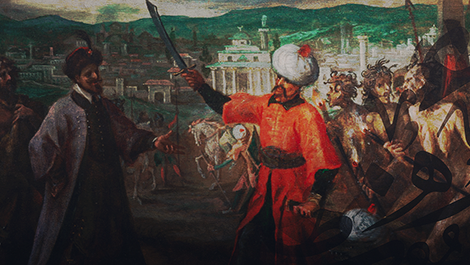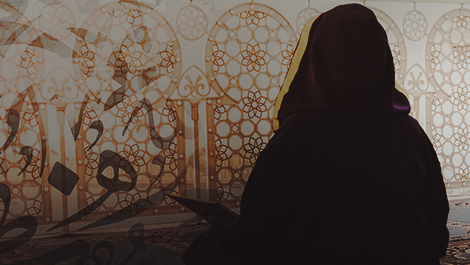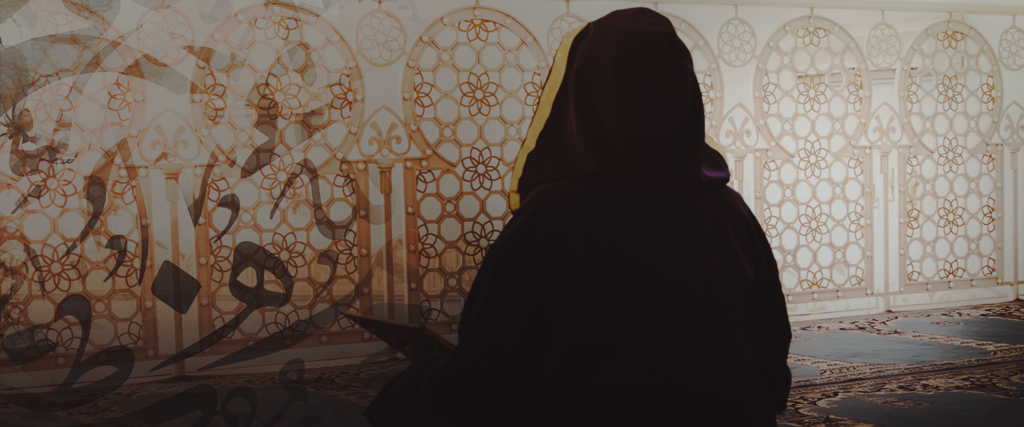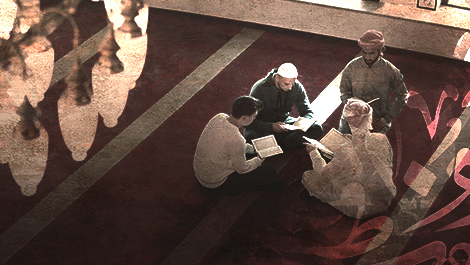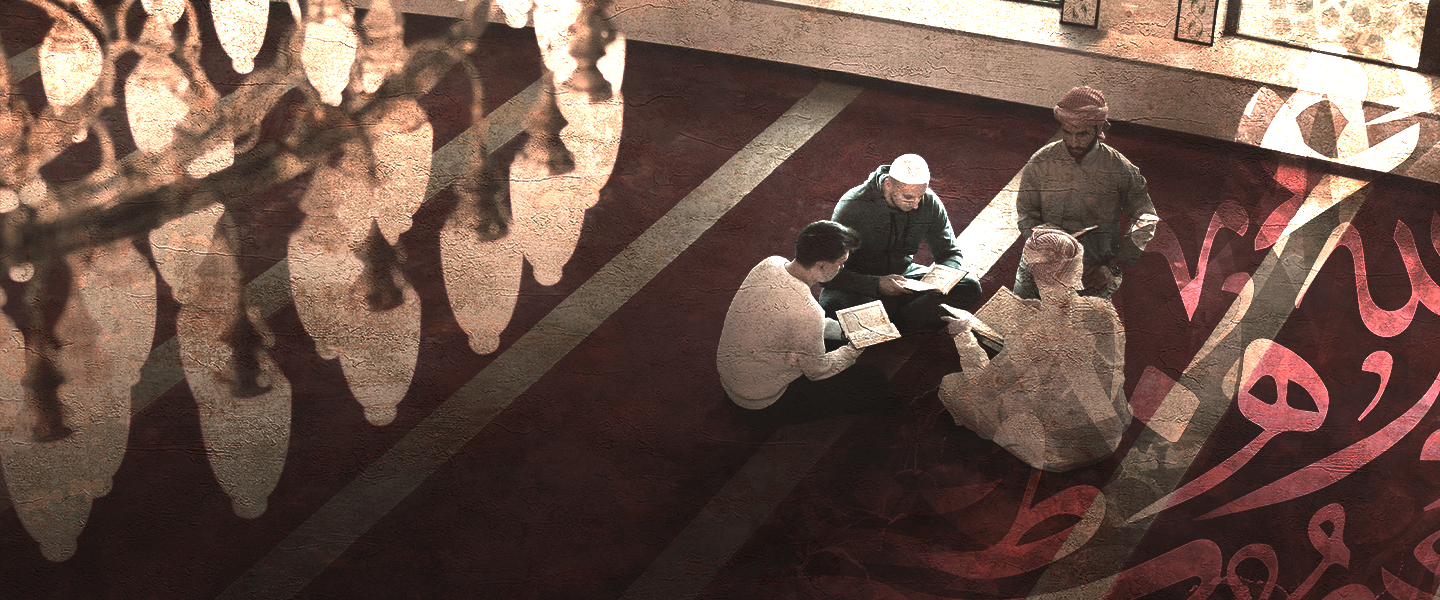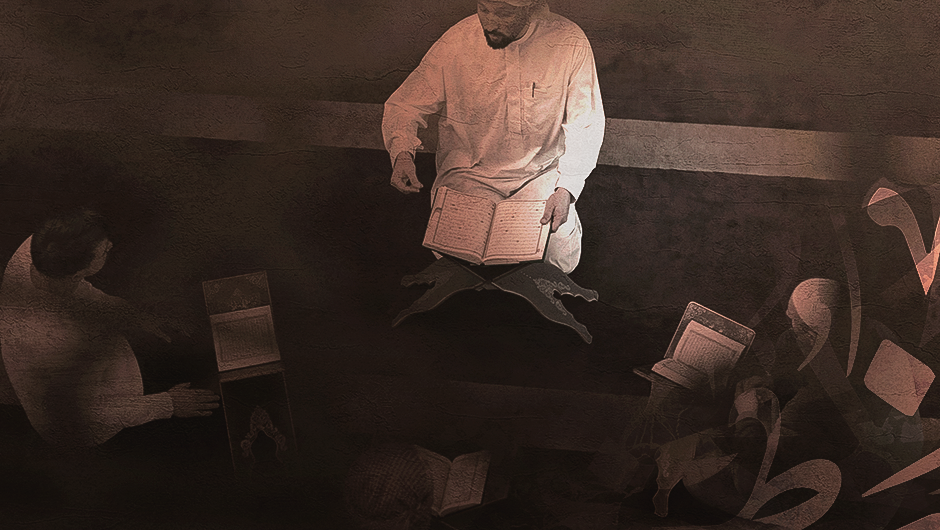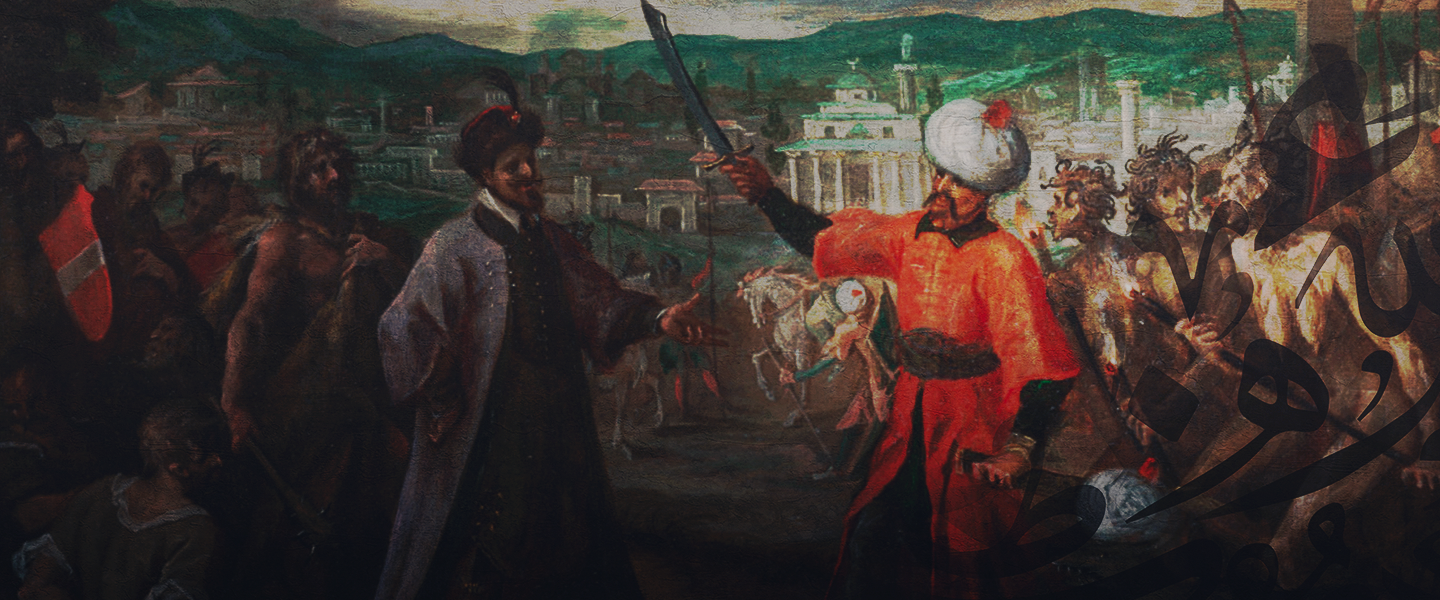
The terms Salafi Versus Sufi Thought, as per their current usage, are both innovated. Such terms were not mentioned in the BookThe ‘Book’ in the above always refers to the Noble Quran. nor the Sunnah in such a context.
There are differences on the validity of the linguistic stem of the word Sufi and what it entails. The preferred is linking it to safa’ (purity), through metaphor or practice of the early Sufis. The best meaning of Sufism is that it is a synonym for the Prophetic term iḥsān and is bound by it.
Background of A Discussion on Salafi Versus Sufi Thought
The Book and the Prophetic Sunnah are the gold standard for all, and no other standard can be interjected.
فلو أنكم قلتم: نقرأ الأحاديث ونسكت، ما أنكر عليكم أحد، إنما حملكم إياها على الظاهر قبيح، فلا تدخلوا في مذهب هذا الرجل الصالح السلفي ما ليس منه. ولقد كسيتم هذا المذهب شينا قبيحا حتى صار لا يقال حنبلي إلا مجسم، ثم زينتم مذهبكم أيضا بالعصبية ليزيد بن معاوية ولقد علمتم أن صاحب المذهب أجاز لعنته، وقد كان أبو محمد التميمي يقول في بعض أئمتكم: لقد شان المذهب شينا قبيحا لا يغسل إلى يوم القيامة
Ibn al-Jazwi is addressing some Hanbalis of his time saying, which means:
“Had you said: ‘We read the narrations and remain silent (i.e., do not attempt to assign a specific interpretation) nobody would have objected to you. But, when you take a literal approach in interpreting such texts, this becomes ugly. Do not interject in this pious Salafi man’s (i.e., Ahmad bin Hanbal) school something that’s not from it. You have cloaked this madh’hab (i.e., the school of Ahmad bin Hanbal) with something ugly, so that it is not said ‘Hanbali’, but a ‘mujassim’ (an anthropomorphist—someone who likens Allāh to His creation, believing that Allāh Ta’āla resembles a human being, within the general lines of such, such as being composed of limbs/organs and residing in or above the 7th Heaven, believing that He is like a man but with superpowers). Then you decorated your madh’hab (school of Ahmad bin Hanbal) with narrow-minded affection to Yazid bin Muawiyah, knowing that the founder of the madh’hab (Ahmad bin Hanbal) permitted cursing him. Abu Muhammad at-Tamimi (i.e., Rizqa’Allāhat-Tamimi al-Hanbali, one of the early Hanbali scholars) said (about al-Qadi Abu Ya’ala, another early Hanbali scholar): ‘He has disfigured this madh’hab in an ugly way that cannot be purified until the Day of Judgment’.”
From that quote, one can deduce that some Hanbalis established a line within the madh’hab that has a clear pattern of anthropomorphism and nasb (anti-Ahl al-Bayt stands)—this is what I referred to as “puritan Hanbalis,” and Allāh Ta’āla knows best. Labeling groups with titles, such as this group of Hanbalis with the label of “puritan” is not meant to be derogatory to any group of Muslims, may Allāh Ta’āla have mercy on all. Rather, it is an attempt to sort them out based on precedence and academic differences. Similarly when I mention any Muslim group and disagree with their academic stands, I mean no disrespect to that school nor its figures, may Allāh Ta’āla guide all, bless all, and grant all Jannah. Some individuals, like the Shafi’i scholar As-Subki (638 H-736 H) used the term: Fudala’u-Hanbalis in his book Al-Mu’id. The ‘fudala’ of Hanbalis’ to Imām As-Subki means—as he stated—the Ash’aris among them, and he cited that some non-fudala’ Hanbalis adopted a belief of anthropomorphism. The pattern of anthropomorphism and nasb in a defined Hanbali line is clear in old writings of many puritan Hanbalis, but this isn’t the focus of this particular discussion., Athari non-Hanbalis, Ash’aris, Maturidis, and the theological schools of other sects, such as the Mu’tazilites, Shi’a sects, and the Khariji sects (whose remnant is the very modified— the current Ibāḍis), was ongoing and developing. At the end of the 5th century, most of the sects were developed and each of them had their own version or interpretation of the Salaf, or pious predecessors. The Sufi movement also started to crystalize as a distinguished movement by the 2nd century, whereby it necessitated key founding figures, such as Al-Junayd Al-Baghdadi, to express, “our Sufism is bound by the Book and the Sunnah.” Other similar statements were repeated later by other Sufi figures like Sayyidi Abdul Qader Al-Jaylani as well, in an era that marked the formal establishment of turuq (schools of tasawwuf) and turuq-ism within the concept of Sufism. Every group in the Ummah had their own set of people/scholars whom they considered as al-Salaf al-Ṣāliḥ, despite the obvious of them overlapping at times.
Theologically speaking, when pertaining to secondary issuesThese are far’iyyat, or non-definitive issues. I use that term (i.e., ‘secondary issues’) to mean issues that are not based on a text that is qat’i in thubut and dalalah (i.e., definitive in transmission and meaning), from an usuli point of view. From an hadithi point of view, it is an issue that is based on a less than sahih (authentic) narration, or based on a narration that is not sahih-in-its-bāb.of tawhīd—kalam, asmā’, and sifāt, etc.-what each group means by al-Salaf al-Ṣāliḥ, is a small group of scholarly figures that happened to live during the third century. I say ‘small’ because the Hanbalis cannot establish recorded, authentic evidence in their views to more than a handful of figures, despite the claims that make it sound as if the whole Muslim world at that time was one way or another. Nonetheless, since they call those handful of figures al-Salaf al-Ṣāliḥ, the impression, nowadays, is that the whole world was like that back then. Furthermore, when the term al-Salaf al-Ṣāliḥ is used in secondary, detailed theological debates and arguments, it usually refers more so to the third century than to the first or second. For no one has an issue with the first generation, which constitutes the Sahaba (Allāh Ta’āla be pleased with them all). The differences start from the second century and were established and crystallized in the third century. Hence, the use of such terms mostly refer back to the second and third century in general.
Furthermore, there are some serious disagreements among Muslim groups and sects regarding who should belong to the group of al-Salaf al-Ṣāliḥ. At times, such disagreements occur within the same ideological group and even in various groups that proclaim to belong to, or exclusively represent, Ahl al-Sunnah Wa al-Jama’a. Additionally, the Salaf al-Ṣāliḥ of the Sufīs are not necessarily the same as that of the nowadays Salafīs and so on. Conversely there could be an acceptance of inclusion conditioned with an insistence that so-and-so is more qualified and more ‘ṣāliḥ’ than so-and-so from the other ideological groups, even within groups having minor differences. Al-Hāfidh Ibn al-Jawzi wrote his famous book,Talbīs Iblīs (Tricks of Shaytan), to simply refute the Sufīs of his time and their effects, including the likes of Imām Al-Ghazzali—may Allāh ﷻ have mercy on both of them.
The fact is, scholars who happened to live in the third or fourth century did not have one unified school of theology nor of fiqh (jurisprudence), and they did not have an agreement about—almost—anything, except that which is mutawatir (definitive) in its transmission or “known by necessity”. For almost every other issue, that particular issue was discussed, debated, and argued, and you will find disagreements and agreements about almost anything in that blessed era. To say that the al-Salaf al-Ṣāliḥ had a madhhab (a unified school in matters of secondary, detailed/non-definitive theology and/or jurisprudence) or the claim that “this is the madhhab of the Salaf”, is simply not factual. Hence, even amongst those who proclaimed Ahl al-Sunnah as their mainframe school, we find differences in main issues of theology, let alone jurisprudence.
Nevertheless, every sect and group claim to have their own “al-Salaf al-Ṣāliḥ” through whom they got their information and affirmed practice. The reality is, it is because of a recent extreme sectarian view—bordering a cult-driven dogma and preaching—that the idea of what al-Salaf al-Ṣāliḥ did and believed became prevalent and almost came to be the benchmark of Sunnah versus non-Sunnah or bid’ah (evil innovation). The danger in such a notion is establishing a new standard other than the Book and the Sunnah, or worse yet, rendering the Qur’ān and Sunnah as valid but contingent on a Salaf or Khalaf’s view or understanding in practice, even if theory says otherwise. The current notion to follow al-Salaf al-Ṣāliḥ makes sense to those who limit the need to find recorded, authentic evidence of the Salaf al-Ṣāliḥ to a group of five or six people who lived in the third century and two or three people who came in the eighth, simply because individual documentation is not there, while contradictory testimonies by other Salafis are equally, widely available. This is pertaining to the secondary detailed issues of Asma’ and Sifāt and Kalām, in particular. Some people consider the use of “secondary” and “primary” religious issues to be an innovation itself. For those people, I define secondary detailed issues as issues that are based on non-qat’i (non-definitive) transmission, and to those who believe that the categorization of qat’i and non-qat’i is also an innovation, I denote them as the issues that have weak transmissions to the Prophet (sallallahu alayhi wa ālihi wa sallam) or when an non-sahih-in-the-bāb transmission is used in lieu of such to substantiate a binding issue in belief. It is important, however, to say that the notion of making the texts of the Book and the Sunnah conditional on the understanding of some people in the “Salaf” or “Khalaf” is not limited to one group or sect. That is to say that stipulating conditions on revelations to be accepted and practiced directly is not native to one group versus another.
The reality is that Allāh Ta’āla did not command us to follow the “al-Salaf al-Ṣāliḥ” as a standard, nor did He command us to imitate anyone other than the one and only truthful, infallible Messenger of this Last Ummah, Sayyiduna Muhammad bin ‘Abdillah (sallallahu alayhi wa ālihi wa sallam). The whole Salaf and the rest of the Ummah, starting with the Sahaba (may Allāh Ta’āla be pleased with them all) were commanded to follow the Book and the Prophetic Sunnah. These two are the gold standard for all, and no other standard can be interjected. With that being said, the ḥadīth of our mother, Um al- Mu’minin, ‘Aisha (may Allāh Ta’āla be pleased with her) in Sahih Muslim is translated as,
“Whoever interjects in this dīn that which is not from it, is rejected.”
Had the term al-Salaf al-Ṣāliḥ been limited to the Sabiqin Awwalin, it would have had a share of the truth in its nomenclature to say the least. As “al-Sabiqin al-Awwalin” is a known group of the Sahaba, they are mentioned in the Qur’ān as a pious and righteous group with an indication to the rest of the Sahaba that if they, and all those who come after, follow them, contingent that this “following” must be in accordance with iḥsān (righteously), they will attain the pleasure of Allāh Ta’āla. One can argue that “righteously” means adhering to the standard of the Book and Sunnah and not prioritizing anything before them. That is to say, when some Salafis require the understanding of “men” of the Salaf’s time for a tawhīd-text to be understood, the Ash’ari notion of prohibiting taqlīd (blind imitation) in beliefs of tawhīd seems to be simply more Salafi than the contemporary Salafis. I believe there is a need to go to the Qur’ān and Sunnah directly for these issues, rather than stipulating fallible understandings as a condition for the Qur’ānic and infallible texts.
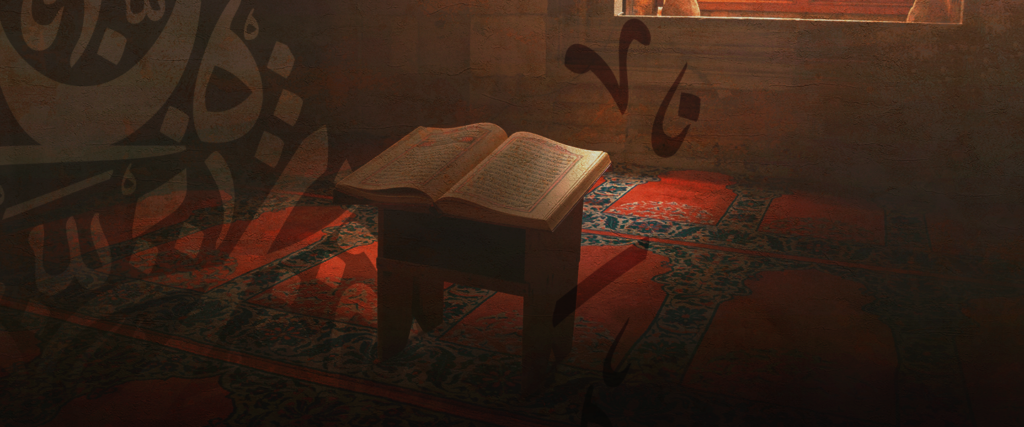
Going back to Qur’ān and the authentic Sunnah
As for al-Salaf al-Ṣāliḥ, if they are Sahaba, then they have a different handling due to their lofty honor. If they are from the second and third century, then they were honorable human beings because of their piety, and the scholars from among them were learnt people, and some of those learned individuals were key figures in groups that were established then or later. It is important to acknowledge that people can love whomever they want, but it may infringe on the faith system itself when the Book of Allāh ﷻ is conditioned to an understanding of a group of fallible individuals, regardless how great or knowledgeable they were. Nonetheless, Allāh Ta’ala commanded us to ask forgiveness for those who passed before us and improve our own selves and situations in order for us to attain our own salvation. The Salaf and the Khalaf cannot help if our imān and deeds are missing. All in all, people may disagree about who is and who is not among the al-Salaf al-Ṣāliḥ, but they won’t disagree about the Qur’ān and the authentic Sunnah; therefore, the call to go “back to basics” is a call for unity and knowing that unity does not mean conformity.
Moreover, The Book was not revealed to be useful to a small group of scholars in the first three centuries— inaccessible to the rest of the Ummah—while the entirety of the Ummah becomes obliged to blindly imitate and adopt that group’s understanding, views, and written texts. The Revealed Texts (i.e., the Qur’ān and the Sunnah) are the standard, not human-written texts. The ta’sis (foundation) is only for the Book and Authentic Sunnah in this dīn. Yes, there is a fiqh of the ḥadīth and Sunnah, and that’s what scholarship from the time of the Pious Predecessors until the day of judgment attempts to explain and shed light on. One needs to delve into that and master it as part of the “Ulum al-ālah/tools” necessary to understand the possible dimensions of the texts. But the Imāms of the Salaf, the scholars of the Salaf, and the Khalaf’s contribution and academic work is for isti’nās (elucidation and expansion), not for substantiation and foundation – may Allāh Ta’āla accept their efforts and be pleased with them all.
This is not to mean like what extreme anti-madh’habis (those who criticize the following of a school of fiqh) went to, such as calling to burn the books of Imām Abu Hanifah, Malik, al-Shafi’i, Ahmad, and the like, and considering them to be idols or considering those madha’hb (schools of fiqh) as a “new dīn”! We seek refuge with Allāh ﷻ! This is rather an argument that aims to set things in their rightful place. We should utilize the efforts of our pious predecessors in our gradual approach to knowledge but refrain from replacing the Book and the Sunnah (in studying, memorization, direct practice, prioritization, analysis, teaching, explaining) with books and/or statements of the Salaf or Khalaf. The works of our great Imāms and the madha’heb are there to lead and push us towards the Book and Sunnah, and that’s the context here. After all, we are mandated in the Qur’ān to ask those of ‘ilm (knowledge) and to refer to them. One should realize, however, that acquiring knowledge is a process that normally requires a gradual approach (tadarruj). It is time to go beyond labels and examine the evident facts. The best way to advance the academic situation of the Ummah is to heavily invest in prioritizing the Qur’ān and authentic Sunnah. They are the illumination and illuminating, and they can eradicate ignorance, merchants of the dīn, and opportunists. The dīn cannot be based on halos given to figures, popular myths, marketing, or detachment from the original revelation—no matter how much these attempts are sugar-coated, and Allāh knows best.

Constructive criticism is key
While there are pious people today who are Salafis and Sufis, there are also impious examples of both. Constructive criticism here, and in all instances, ensures that one does not see his or her own group’s virtues and another group’s vices. Rather, it is to recognize that, while some of the so-called Sufis gave Sufism (which is supposed to reflect the state of iḥsān) a very bad reputation (as Ibn ‘Arabi himself stated), Salafis also have pious and learned figures who love Allāh Ta’āla, His Messenger (sallallahu alayhi wa ālihi wa sallam), and this dīn and vice versa. Additionally, some shades of the current Salafis that profess the following of early puritan Hanbalis have—like many of their ideological ancestors—institutionalized—to a lesser degree—labeling, slander, hate, and narrow-mindedness along with verbal, intellectual, and even physical violence at certain times in their books, ideologies, and teachings against their fellow Muslims who differ with them on certain issues. This is not limited to certain shades of Salafis, or even Salafis in general because there are some ideologically extreme Sufis today who put radical Salafis to shame when it comes to the level of misrepresenting and misquoting the other with hate, slander, verbal violence, and conditioning this wide faith to the understanding of a few individuals, though this is not usually the norm in Sufism. More importantly, the ‘cult’ kind of Sufis today do not have a “Salaf Ṣāliḥ” from the second or third century institutionalizing such steps and codes in tasawwuf (Sufism), something that you would not have a hard time finding in some early, puritan Hanbali texts.
The emergence of a ‘cult’ culture
Furthermore, signs of the alarming emergence of a ‘cult’ culture within the Ummah are indicated by a person who lacks qualified knowledge in religious scholarship but joins a current movement and becomes a judge over other Salaf and Khalaf scholarly figures. Said person then goes further by awarding Jannah to seniors of his own group and Jahannam to the others. This individual becomes a judge and sometimes an executioner despite clear, unambiguous, and direct Qur’ānic commands, along with Prophetic instructions, affording rights, dignity, and worth to every human soul, let alone a scholar of the dīn. To a cultist, the Qur’ānic and Sunnah texts are inapplicable or are contingent on a Salaf’s or Khalaf’s endorsement or understanding, for the latter becomes the standard, and what starts wrong most likely mostly ends wrong. To me this is a rabbani indication to all that the only standard, and one that is inclusive and unconditionally compassionate, is the Book of our Creator Ta’āla and the authentic Sunnah of our Beloved Messenger (sallallahu alayhi wa ālihi wa sallam). For the scholars, whether puritan Hanbalis or others, across the spectrum of the Ummah of ‘La Ilaha Illa Allah,’ we agree on the common and pray that Allāh Ta’āla guides all, forgives all, and grants all Jannah.
When examining an issue, it is very important to look at the Book and authentic Sunnah as a whole, not just a segment. One is to take an encompassing and comprehensive approach and not disengage the revealed texts based on a stipulated condition by a contested human text. I will—in sha Allāh- in the future talk about this pattern of religious tyranny, and list evidence from printed early, puritan Hanbali books of the measures they employed to terrorize their opponents verbally, intellectually, and physically. Again, this is not how all the puritan Hanbalis were, nor the Ash’ari/Maturidi Hanbalis, let alone the Sufi Hanbalis. However, there seems to be a pattern that keeps occurring when a combination of might, God-fearlessness, and ignorance prevails. This pattern isn’t native to a certain religious group, be it puritan Hanbalis or others, or even a certain faith system. It can be deemed as a human trend,but I will focus more on the early, puritan Hanbalis, simply because I think, and can substantiate with evidence, that they led the flagship of such an ideology and even institutionalized it because their present day ideological offspring still employ the same understanding. Again, that is not to say that other groups did not follow suit and employ the same ugly practices, including some Sufis. Misrepresentation of the opponent paves the way for demonization, which—in the mind of a cultist/ignorant—lays the legal foundation necessary to violate all rights Allāh Ta’āla granted every human being in general and every Muslim in particular. I remember my late father (rahimahu Allāhu Ta’ala) words during his teaching of Monotheism and sects, which are still ringing in my ears: “If you can’t articulate your opponent’s points as well as you articulate your own, then you haven’t even started.” Simply, you cannot begin to be a scholar if you misrepresent your opponent and make an easy case for yourself in front of your cheering crowds. Lots of outstanding issues among Muslim groups are based on misinterpretation and or misrepresentations of the other. That is not to say that there are not real differences; in fact, some of those differences are simply irreconcilable but, that should not prevent us from being transparent and just in an effort to avoid engaging in dhulm (oppression) against others, as ordered by the authentic narrations of the Prophet (sallallahu alayhi wa ālihi wa sallam). .
I have heard some of my Shuyukh (rahimahum Allāhu Ta’āla) calling themselves a “Salafi Sufi” or as Ibn Taymiyya himself identified and praised, “the Suffiyya of Ahl al-Hādith,”which is something that one may see as a contradiction. In reality, it is not a contradiction—not in Ibn Taymiyya’s harsh and, oftentimes, unfair anti-Sufi perspective—in the essential meaning of the labels. We often read in the books of Salafis that a true Salafi is one who follows the Book and Sunnah. Similarly, this statement is all over the books of Sufis. If this is what it is, then the equation becomes clear—a true Salafi is a true Sufi and vice versa. In the end, I believe the Salafi versus Sufi argument gets us nowhere when it turns into “mental tennis” that seems to be more like a club where one group is more supported than the other, rather than each group seeking the truth with the full and honest disclosure of evidence and an open mind and heart for truth-seeking dialogue by individuals who are experts on both sides. Oftentimes, emotional debates with unqualified individuals bring no real results and end up in back-and-forth slander and accusatory rhetoric where takfīr (declaring the other as an apostate) instead of tafkīr (thought/contemplation) becomes the end result of a debate and dialogue. May Allāh Ta’āla help us all.
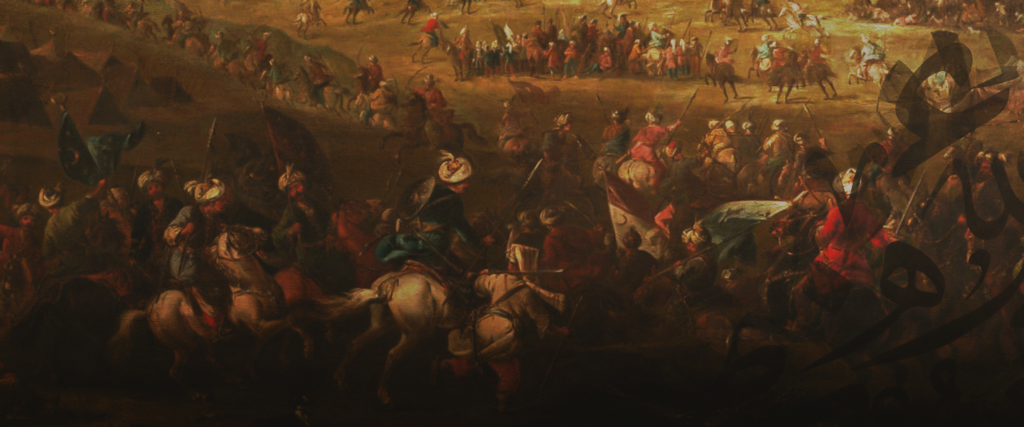
Going beyond labels
With ignorance the way it is, and with the emerging cult culture, classifying an individual with the word ‘Sufi’ or ‘Salafi’ is enough to demonize that person without knowing the extent, meanings, and implications of that person’s Salafism or Sufism. We are poisoning the minds of our youth with such a cultish rhetoric of hate. If we spent the same amount of time, effort, and resources teaching our youth love and unconditional compassion (core Sunnah values) instead of how evil everyone else is, we would have advanced further on all fronts—this should be the rule, not the exception. Since both terms or labels of Sufism and Salafism are not defined by the Book and Sunnah, they must be defined because they could mean different things to various groups of people. Therefore, we need to always go beyond the label and see how that individual defines his or her Sufism or his or her Salafism prior to making mass judgments and blanket declarations of takfīr or tafsīq (declaring the other as immoral or corrupt). For now, how about we call ourselves Muslims, just like Allāh Ta’āla Himself named us in the Qur’ān. Then, when asked about our methodology of authenticating the Prophetic Sunnah, we cite the methodology of Ahl alSunnah and rid ourselves of this headache of the technical terminologies and its true application! Afterall, the Sufi’s always teach us that tasawuff used to be a reality without a name, and it became a name without a reality! Regardless of ‘Sufi’ or ‘Salafi’ label, neither label is good enough in and of itself; rather, the standard should be how closely one is attached to the Book and the Sunnah in belief, utterance, and practice. Nevertheless, the Sufis stipulate a further step, not just the genuine attachment to the Book and the Sunnah but also the attachment of one’s heart, not just words and action, to the Lord of the Book and the Messenger of the Sunnah (sallallahu alayhi wa ālihi wa sallam). This attachment is called LOVE—not just love for the Book and the Sunnah but to be in love with the One who gave us the Book and the one who gave us the Sunnah. Obviously, I believe that the Sufi based approach to the Qur’ān and the authentic Sunnah, whether they call themselves Sufi’s or not, is a closer approach to the core of the Qur’ān and Sunnah. This is because they focus on the spiritual aspect of the faith, not solely the ritualistic or technical aspects. They also deal with the concept of tazkiyah (purification of the heart) in a way that the Salafis have not dealt with adequately, as evidenced by books and training manuals from over 1,000 years ago.
In summary, the Qur’ān and Sunnah are free from needing any add-ons , just actualization to reach the spiritual aspect rather than stopping at the technical implication. This was the theme of many Sufi compilations from past and present, yet infallibility remains only for the Prophets of Allāh Ta’āla, alayhem assalam. Living and expressing love and unconditional compassion is key in Sufi training and is needed now more than ever, intra and inter-islamically. Doing so may rid us of misunderstandings, misrepresentations, and misquotations that may make us live in times of unconditional compassion and only then is true change possible. The early Sufis figured devoting time to self improvement to become eligible for Paradise (Jannah) is much more beneficial than devoting one’s time to proving another is bound to Hellfire (Jahannam). Compassion in action, or embodied compassion, is what is needed, not talks about compassion and mercy. All of this is found in the most beautiful way in the Book and the Sunnah. Although, unfortunately with a growing cult like culture, this very reality may be threatened. As such, there is a need for all to realize that mere affiliation to a group—regardless of labels—does not necessarily mean automatic salvation, while affiliation, affirmation, and confirmation in belief, words, and practice to the Book and the authentic Sunnah does. A system of checks and balances, along with constant referencing to authentic sources, must be an ongoing process for all groups while they maintain a practical and effective platform for constructive criticism.
Read More: islamic degree online
The dīn cannot be based on halos given to figures, popular myths, marketing, or detachment from the original revelation.
. The early Sufis figured devoting time to self improvement to become eligible for Paradise (Jannah) is much more beneficial than devoting one’s time to proving another is bound to Hellfire (Jahannam). Compassion in action, or embodied compassion, is what is needed, not talks about compassion and mercy. All of this is found in the most beautiful way in the Book and the Sunnah. Although, unfortunately with a growing cult like culture, this very reality may be threatened. As such, there is a need for all to realize that mere affiliation to a group—regardless of labels—does not necessarily mean automatic salvation, while affiliation, affirmation, and confirmation in belief, words, and practice to the Book and the authentic Sunnah does. A system of checks and balances, along with constant referencing to authentic sources, must be an ongoing process for all groups while they maintain a practical and effective platform for constructive criticism.
If you can’t articulate your opponent’s points as well as you articulate your own, then you haven’t even started.
Allāh Ta’āla knows best.



